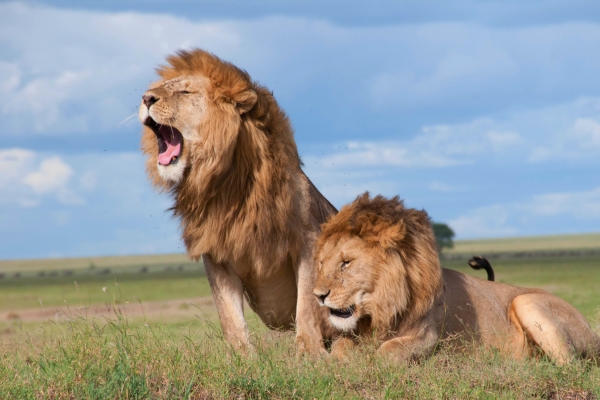World Lion Day, celebrated on August 10th each year, is a global observance dedicated to raising awareness about the conservation and protection of lions, as well as their importance in ecosystems and cultures around the world. Lions (scientifically known as Panthera Leo) are one of the most iconic and charismatic large carnivores, often referred to as the “king of the jungle.” However, they inhabit a range of habitats beyond just jungles, including savannahs, grasslands, and scrublands.
History and Significance:
World Lion Day was first established in 2013 by big cat enthusiasts and organisations to draw attention to the declining lion populations and to promote efforts for their conservation. Lions face numerous threats, including habitat loss, human-wildlife conflict, poaching, and trophy hunting. The day serves as a platform to educate the public, engage with communities, and raise funds for lion conservation projects.
Importance:
- Biodiversity: Lions are apex predators, playing a crucial role in maintaining the balance of ecosystems. They regulate prey populations, which in turn affects vegetation and other species in their habitat.
- Cultural Significance: Lions have been revered in various cultures throughout history. They symbolise strength, courage, and leadership in many societies and are often associated with royalty and power.
- Economic Benefits: Lion populations attract wildlife tourism, contributing to local economies and creating jobs. Safaris and wildlife photography centered around lions draw tourists from around the world.
- Indicator Species: The health of lion populations can be indicative of the overall health of their ecosystems. A decline in lion numbers can signal ecological imbalances that may affect other species as well.
Conservation Efforts:
Numerous organisations and initiatives work to conserve lion populations and their habitats. Efforts include:
- Protected Areas: Establishing and maintaining protected areas and national parks where lions can thrive without human interference.
- Community Involvement: Engaging local communities in conservation efforts by providing incentives for coexisting with lions and addressing human-wildlife conflicts.
- Anti-Poaching Measures: Combating illegal poaching of lions and their prey species through law enforcement and awareness campaigns.
- Research and Monitoring: Studying lion behaviour, population dynamics, and genetics to develop effective conservation strategies.
- Legislation: Advocating for policies and regulations that support lion conservation, such as bans on trophy hunting and stricter regulations on wildlife trade.
How to Participate?
- Educate Yourself: Learn about the challenges faced by lions and their conservation efforts.
- Spread Awareness: Use social media to share facts, images, and stories about lions using relevant hashtags like #WorldLionDay.
- Support Conservation Organisations: Contribute to reputable organisations that focus on lion conservation.
- Avoid Lion Products: Refrain from purchasing products made from lion parts, which can contribute to illegal wildlife trade.
- Promote Responsible Tourism: If you plan to visit areas with lions, choose operators and activities that prioritise ethical and responsible wildlife encounters.
Remember that the protection of lions is not only about preserving a magnificent species but also about safeguarding the health and balance of the ecosystems they inhabit.
Read More: https://clipper28.com/en/mumbai-to-goa-in-just-6-hours-nh-66-set-to-open-next-month/








